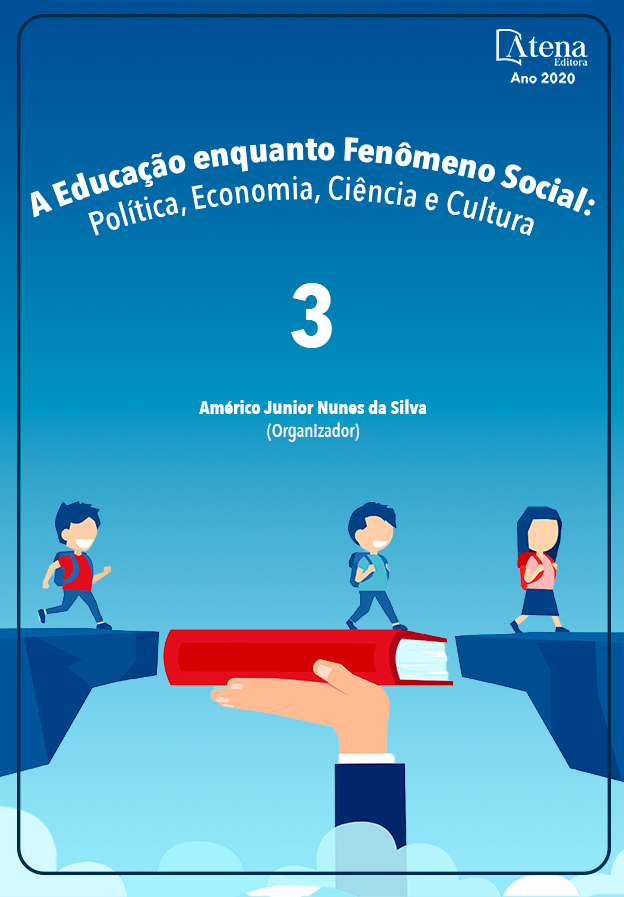
ATIVIDADES EDUCATIVAS EM ALEITAMENTO MATERNO: RELATO DE EXPERIÊNCIA COM GRUPO DE GESTANTES
1. INTRODUÇÃO: A prática do aleitamento materno tem sido utilizada há décadas como uma estratégia de saúde pois, assegura a redução da morbidade e mortalidade infantil. Para que o aleitamento seja eficaz ele depende, em grande parte dos aspectos socioeconômicos e culturais no qual a mulher está inserida, bem como do apoio de familiares e das orientações que recebe por parte dos profissionais de saúde que estão envolvidos no processo (ALMEIDA; FERNANDES; ARAÚJO, 2004; MARQUES; COTTA; PRIORE, 2009). OBJETIVOS: Descrever atividades educativas relacionadas a amamentação enfatizando seus benefícios e manejo quanto ao posicionamento e pega adequada em grupos de gestantes. METODOLOGIA: Trata-se de um estudo descritivo, tipo relato de experiência, referente a quatro encontros o projeto de extensão com o grupo de gestantes sobre atividades educativas relacionadas ao aleitamento materno, no ano de 2017 e primeiro semestre de 2018 em Unidade Básica de Saúde e Estratégia Saúde da Família na cidade de Dourados-MS, onde estavam presentes uma média de 15 participantes por encontro. Foi utilizado mamas de crochê em forma de sutiã demonstrado por uma participante do grupo e um boneco para exemplificar o posicionamento adequado para amamentar. Realizada uma roda de conversa sobre as dúvidas, mitos e experiências vividas pelas gestantes, bem como, discutidas as vantagens da amamentação em livre demanda, posicionamento adequado e pega areolar correta. RESULTADOS: O aleitamento materno foi debatido em forma de roda de conversa, onde houve compartilhamento de experiências e dúvidas. Estavam presentes mulheres primíparas e multíparas, este contexto possibilitou uma troca de saberes e experiências entre as gestantes, que retornam amamentando seus filhos de forma eficiente, acadêmicas e as Agentes Comunitárias de Saúde, tornando os encontros enriquecedor. CONCLUSÕES: Observou-se que as gestantes estavam mais próximas e seguras em relação ao aleitamento materno, transparecendo que, nestes encontros as mulheres sentiram-se apoiadas, compreendidas e esclarecidas quanto as dúvidas. Conclui-se também que, essas experiências agregam conhecimento e crescimento a vida acadêmica dos estudantes de enfermagem.
ATIVIDADES EDUCATIVAS EM ALEITAMENTO MATERNO: RELATO DE EXPERIÊNCIA COM GRUPO DE GESTANTES
-
DOI: 10.22533/at.ed.33420051121
-
Palavras-chave: Aleitamento Materno; Saúde da Mulher; Educação em Saúde.
-
Keywords: Breast Feeding; Women’s Health; Health Education.
-
Abstract:
INTRODUCTION: The practice of breastfeeding has been used for decades as a health strategy because it ensures the reduction of infant morbidity and mortality. For breastfeeding to be effective it depends, to a large extent, on the socioeconomic and cultural aspects in which the woman is inserted, as well as on the support of family members and the guidance she receives from the health professionals involved in the process (ALMEIDA; FERNANDES ; ARAÚJO, 2004; MARQUES; COTTA; PRIORE, 2009). OBJECTIVES: To describe educational activities related to breastfeeding, emphasizing its benefits and management regarding positioning and adequate handling in groups of pregnant women. METHODOLOGY: This is a descriptive study, type of experience report, referring to four meetings the extension project with the group of pregnant women on educational activities related to breastfeeding, in the year 2017 and the first semester of 2018 in a Basic Health Unit and Family Health Strategy in the city of Dourados-MS, where an average of 15 participants were present per meeting. Crochet breasts in the form of a bra demonstrated by a group participant and a doll were used to exemplify the proper positioning for breastfeeding. A conversation was held about the doubts, myths and experiences lived by pregnant women, as well as the advantages of breastfeeding on demand, proper positioning and correct areolar grip were discussed. RESULTS: Breastfeeding was discussed in the form of a conversation circle, where experiences and doubts were shared. Primiparous and multiparous women were present, this context enabled an exchange of knowledge and experiences between pregnant women, who return to breastfeeding their children efficiently, academics and Community Health Agents, making the meetings enriching. CONCLUSIONS: It was observed that pregnant women were closer and safer in relation to breastfeeding, making it clear that, in these meetings, women felt supported, understood and clarified about their doubts. It is also concluded that these experiences add knowledge and growth to the academic life of nursing students.
-
Número de páginas: 4
- Roselaine Terezinha Migotto Watanabe
- Camila Marins Mourão
- Leonardo Alves da Silva Palacio
- Renata Lopes da Silva
- Rafaela Cabral Belini


